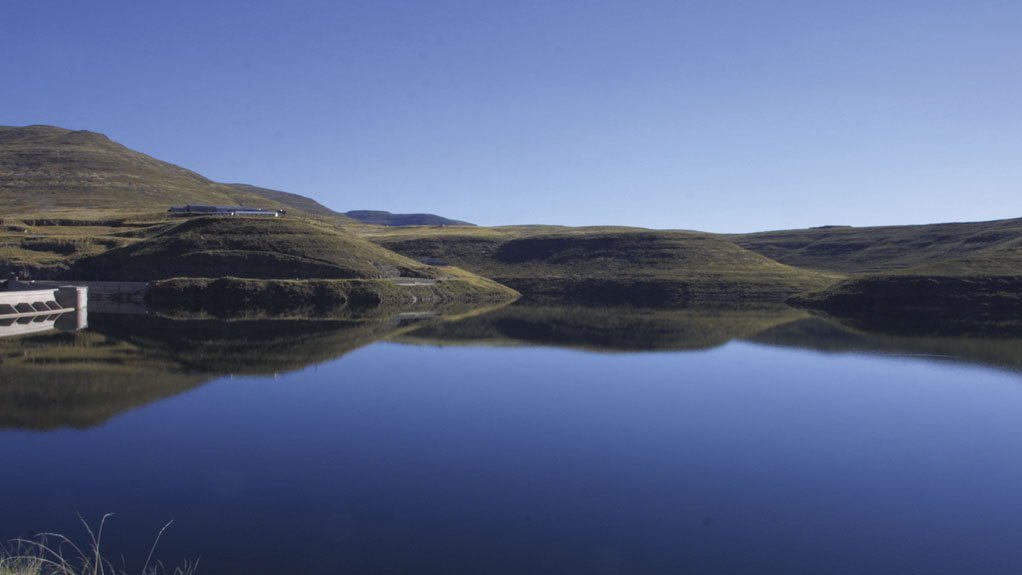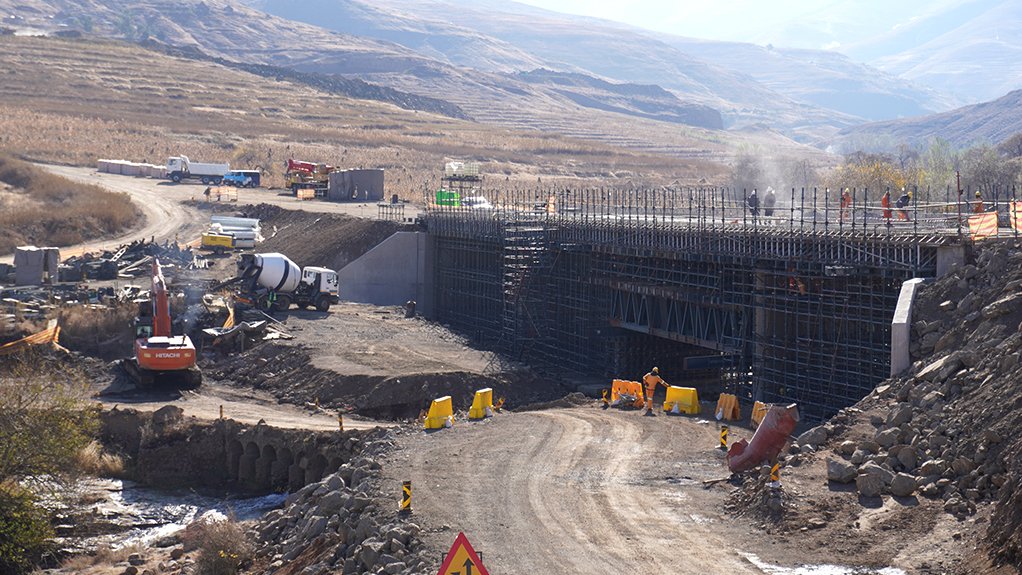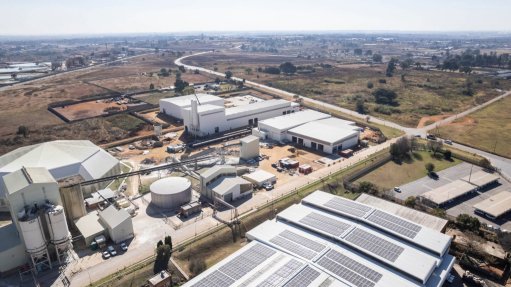LHWP Phase 2 to reach completion in 2028



WATER AND MORE WATER Phase 2 goals include increasing the volume of water available for transfer to South Africa and stimulating local industry and economic growth
CONSTRUCTION PROGRESSING There has been significant progress on the construction of the access roads and the associated bridges
About 17 990-million cubic metres of water have been transferred to South Africa since the commissioning of the Lesotho Highlands Water Project (LHWP) Phase 1 in 2004.
This has earned Lesotho royalties amounting to R13 639-billion The water transfer component of LHWP Phase 2 is planned to be completed by the end of 2028 and the hydropower component completion will follow in 2029.
The LHWP addresses a double coincidence of needs, the first is South Africa’s need to augment its water supply, particularly in Gauteng, to provide for increased demand from industrial, agriculture and domestic users, and the second is Lesotho’s wish to earn external revenue and to save foreign exchange by developing hydropower locally which will reduce Lesotho’s dependence on imported energy.
LHWP public relations manager Masilo Phakoe says the LHWP was envisaged to be implemented in four phases, ultimately transferring 70 m3/sec of water to South Africa. To date, the parties have committed to two phases.
Phase 2 will add another 2 322-million cubic metresin storage capacity enabling an incremental increase in water transfer capacityfrom 780 to 1 270-million cubic metres a year.
Phakoe states that the Phase 2 goals include increasing the volume of water available for transfer to South Africa and stimulating local industry and economic growth, increasing the country’s tourism potential and enabling the development of micro and small industries.
Additionally, the Oxbow Hydropower Scheme, which is a hydropower infrastructure, is regarded as the third major engineering component of Phase 2 to take place after the water transfer.
He explains that because of the increased flow of water from the Polihali dam in Lesotho, the energy generated at the existing Muela Hydropower Station will also be increased by 40%. “The power generated at Oxbow will add to that.”
Based on the feasibility design, Oxbow Hydropower will generate about 80 MW at the Malefiloane power station, plus possibly about 10 MW at another power station in Nqoe, near the ‘Muela reservoir.
“R39-billion is the total cost of Phase 2 – this amount will increase if there are significant delays,” says Phakoe.
Moreover, Phakoe says the Lesotho Highlands Development Authority is mandated by the 1986 Treaty and the Phase 2 Agreement to ensure that the risks associated with involuntary resettlement are addressed and that the livelihoods of affected people are restored or improved.
Phakoe states that with the Livelihoods Restoration programme, construction of the first nine replacement houses for people affected by the roads and bulk power infrastructure developments from six villages are underway.
“These houses are expected to be handed over to the affected families by early 2023.”
Moreover, there has been significant progress on the construction of the access roads and the associated bridges, the bulk power and telecommunications infrastructure, the project’s resettlement action planning, unskilled labour recruitment through the Project Labour Desk and the rollout of public health programmes in the project area.
Livelihoods awareness programmes are being held across the LHWP Phase 2 areas to help communities make informed decisions. Such programmes include ecotourism as a livelihood option and financial education programmes.
A Social Development Master Plan (SDMP) is in preparation. It involves intensive consultation with local communities to identify needs and priority projects for implementation, notes Phakoe. Projects within the SDMP include water and sanitation, rural electrification, public health, agriculture, tourism, social protection, and educational enhancement such as skills and enterprise training and development, he concludes.
Article Enquiry
Email Article
Save Article
Feedback
To advertise email advertising@creamermedia.co.za or click here
Comments
Press Office
Announcements
What's On
Subscribe to improve your user experience...
Option 1 (equivalent of R125 a month):
Receive a weekly copy of Creamer Media's Engineering News & Mining Weekly magazine
(print copy for those in South Africa and e-magazine for those outside of South Africa)
Receive daily email newsletters
Access to full search results
Access archive of magazine back copies
Access to Projects in Progress
Access to ONE Research Report of your choice in PDF format
Option 2 (equivalent of R375 a month):
All benefits from Option 1
PLUS
Access to Creamer Media's Research Channel Africa for ALL Research Reports, in PDF format, on various industrial and mining sectors
including Electricity; Water; Energy Transition; Hydrogen; Roads, Rail and Ports; Coal; Gold; Platinum; Battery Metals; etc.
Already a subscriber?
Forgotten your password?
Receive weekly copy of Creamer Media's Engineering News & Mining Weekly magazine (print copy for those in South Africa and e-magazine for those outside of South Africa)
➕
Recieve daily email newsletters
➕
Access to full search results
➕
Access archive of magazine back copies
➕
Access to Projects in Progress
➕
Access to ONE Research Report of your choice in PDF format
RESEARCH CHANNEL AFRICA
R4500 (equivalent of R375 a month)
SUBSCRIBEAll benefits from Option 1
➕
Access to Creamer Media's Research Channel Africa for ALL Research Reports on various industrial and mining sectors, in PDF format, including on:
Electricity
➕
Water
➕
Energy Transition
➕
Hydrogen
➕
Roads, Rail and Ports
➕
Coal
➕
Gold
➕
Platinum
➕
Battery Metals
➕
etc.
Receive all benefits from Option 1 or Option 2 delivered to numerous people at your company
➕
Multiple User names and Passwords for simultaneous log-ins
➕
Intranet integration access to all in your organisation



















